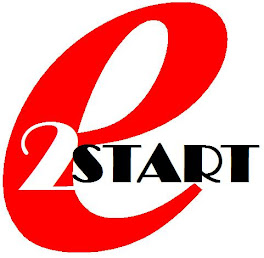CIRCLE - Core Values that contribute to the success and long term viability of a company.
(CopyRight 2009; Benjamin Goh, www.bensglobal.com)
C for Culture. Culture of a company is somewhat equivalent to the character of a person. What differentiates a person with many good friends and a lonely person is her/his character! Likewise, customers normally chose to work with companies with a customer-centric culture, assuming that all other aspects of the business is acceptable.
I for Innovation. In order to succeed in any economic situation, a company has to have innovation in its bloodline. Even a small restaurant has to be innovative in order to attract the right customers at the right time with the right spending habits. For example, there has been numerous reports in recent months in Asia that inexpensive (low cost) food sold in food courts or hawker stands are in much higher demand than in good economic times. McDonalds have lowered their value meals during lunch times to beat the recession fever in most Asian countries. So, innovation is key to making a competitive difference!
R for Relationships. In most businesses, its the comfort zone of working with familiar people and their companies who understands our needs, able to share the best practices in our industry and knows how to do business with us that facilitates long term viable business relationships. And in bad times, understands that passing down of savings to customers means the extra icing on the cake for the relationship.
C for Core Competency. This cannot be emphasized more that companies should always focus on their core competency. It is so critical that resources are used to innovate along the lines of their core competency. One approach is to innovate into vertical industries, that is, how can we market and sell into specific vertical industries with the same product or service that we have today and at the same time, showcasing specialization and know-how in specific vertical industries. This helps to open new markets without sacrificing on the core competency.
L for Long-term Strategy. All businesses should not only focus on the short term survival but also on the long run. Review the current strategy and adjust, adapt, align for the existing situation. Manage the change if necessary. Watch the cost for cost is within control but not so, with revenue. We can only pursue and court revenue and revenue may or may not come to us. But definitely, we can manage cost. Spend on what is essential and we will be surprised that most companies cut down on advertising during the bad times. This is a big mistake. We should be prudent about spending on advertising but we should not totally stop advertising in any form. Advertise innovatively. Above all, look long term!
E for Employees. Many companies look at cutting staff during bad times and this, in fact, has an adverse impact on the good employees. Good employees will leave if they feel that the company does not care. So, if there is a real need to cut staff strength, make sure that this is a company-wide affair where individual staff are interviewed and their opinion seeked with regards to who should and should not be part of the team. Corporate directions, mission, vision, strategy and the likes are to be communicated to the staff so that they will not be lost and is aware of what the company is doing in the midst of the economic crisis. Been informed and knowing that the company cares is what motivates the employees. As such, even in bad times, a small monetary award for good performances or a thank-you note or even a birthday card means so much more! Without employees, its like without the body parts for a company. Each employee plays a critical role in the success of the company!
Subscribe to:
Post Comments (Atom)

No comments:
Post a Comment